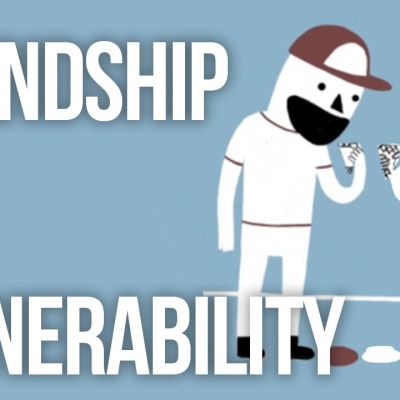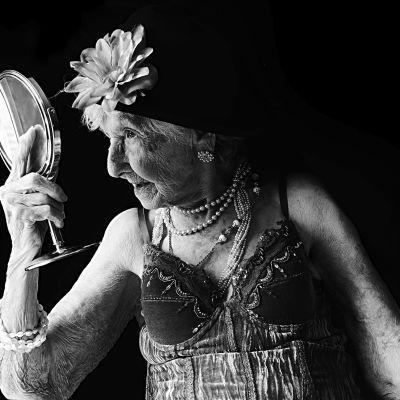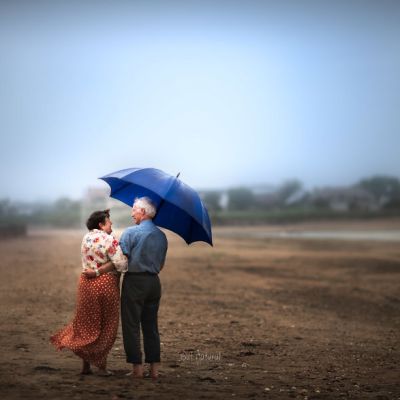love
We are often told to speak to ourselves as we would to a friend, gently and lovingly. At the heart of friendship is vulnerability – a radical acceptance of oneself and another for who we truly are, the glowing and beautiful, as well as the dark and crooked.
Ageing is often associated with a loss, a lack of ability and strength. When combined with sexuality, in the popular imagination, fed especially by market forces, youth is to be lauded and ageing regarded as the impending horror that must be evaded for as long as possible.
The conversion of the noun (adult) into the verb form (adulting) implies that ‘adulting’ is more performance than inevitability. Which is to say, there is no intrinsic understanding of ‘adulting’; it is something that can be learnt over time.
As Clément subverts ageist norms around beauty with her camera-work, the women and men (ranging in age from 70 to 102 years) who reveal themselves in this project give us a glimpse into their inner world and the rich and vibrant ways in which they experience sensuality.
Capturing moments of tenderness between these couples as they shine with affection, comfort, and laughter, Sujata’s photo-series reminds us that we don’t simply fall in love, but with time, nurture and strengthen intimacy.
The issue with the ‘Aunty’ body arises from a deeply misogynistic and dehumanising understanding of women. In this imagination the woman, whom the world now addresses as ‘Aunty’, has basically served her purpose of marriage and child bearing, and is hence rendered useless.
What is unconventional about the depiction of this love, among all the others that have been spoon fed to us via Bollywood, is that this romance between two older people – Nafisa Ali and Dharmendra – is not about stealing the odd glance and simply holding hands.
It is true though that ageing has brought home realities about my body that I ignored when I was younger. It has made me mindful of what I value, and what I choose to let go of, without too much of thought or unnecessary angst.
The most satisfying spiritual and sexual experiences I’ve had were not in my twenties, thirties or even forties. They have been in my 50’s. The most insightful spiritual insights, and the most orgasmic orgasms have both arrived in middle age.
Age is not just a number, like it is often said to be. It is a lot combined together. It is about grace, it is about exposure, it is about knowledge, it is about the ability to fight back. And yet, in endless other ways, age IS just a number.
In this issue of In Plainspeak our contributors reflect on and reveal the myriad facets of being single – is it a choice? A condition? A state of being? Lonely? Joyful? Not one or the other, but a glorious mix?
Why is it always so hard to find a place for intimacy and why do we have to lie and cheat our way into getting it? Everything related to non-committal sex was always so taboo, shrouded in secrecy, and eliciting raised eyebrows, that it turned me off.
The only hitch was that neither the agents nor the landlords who lurked behind those rentable flats were particularly keen on leasing their precious properties to a – what! Divorcee??!! No, no, madam, but this flat is only for families.
Emma Watson spoke to British Vogue about the incredible amounts of stress and anxiety that follows, “…if you have not built a home, if you do not have a husband, if you do not have a baby, and you are turning 30, and you’re not in some incredibly secure, stable place in your career, or you’re still figuring things out…”
By the end of the evening, the room was suffused with the celebration of singlehood, rather than any explanation or apology for it. It appeared that the solitary life was envied and extolled by those who have opted out of it as well as many who haven’t.















